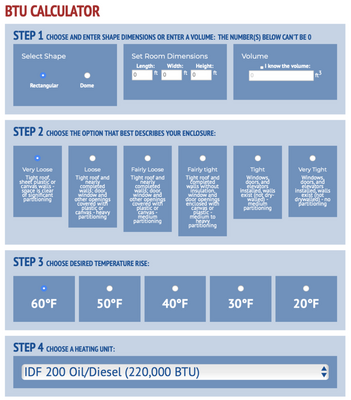- 1-905-452-8193
- Contact Us
- Member Login
- Get Listed Today
- 220,911 members

Experts in air conditioning Canberra explain that the BTU, or British Thermal Unit, is a unit of measurement that is often used to determine the amount of energy that is required to raise or lower the temperature of one pound of water by one degree Fahrenheit. This unit of measurement is also sometimes used to determine the efficiency of heaters and cooling systems. In general, anything that uses energy to create heat or coolness can be said to have a BTU output.
BTUs are important because they offer a way to compare the energy output of different devices. For example, if you are considering buying a new furnace, you can look at the BTU rating to see how much heat it produces compared to other furnaces on the market. The higher the BTU rating, the more heat the furnace produces.
Similarly, if you are considering buying a new air conditioner, you can look at the BTU rating to see how much cooling it produces compared to other air conditioners on the market. The higher the BTU rating, the more cooling the air conditioner produces.
BTUs can also be used to compare the efficiency of different devices. For example, some furnaces have a higher BTU rating but are less efficient than others. This means that they use more energy to produce the same amount of heat. Similarly, some air conditioners have a higher BTU rating but are less efficient than others. This means that they use more energy to produce the same amount of cooling.
BTUs can be either positive or negative, depending on whether they are measuring heat gain or heat loss. A positive BTU indicates heat gain, while a negative BTU signifies heat loss. For instance, when you turn on a light bulb, the resulting increase in temperature within the room would be considered a positive BTU. Conversely, when you open a window on a cold day, the resulting heat loss from the room would be considered a negative BTU.
When you are considering the purchase of a new heating or cooling system, it is important to look at both the BTU rating and the efficiency rating. The BTU rating will tell you how much heat or coolness the device produces, but the efficiency rating will tell you how much energy the device uses to produce that heat or coolness. A more efficient device will use less energy and therefore cost less to operate.
The following list is a summary of what the BTU is, and its significance to your air conditioner.
1. The BTU is a measure of heat. It stands for British Thermal Unit and is a unit of measurement for heat. When it comes to air conditioners, the BTU rating determines how much heat an air conditioner can remove from a room per hour.
2. A higher BTU rating means more cooling power. If you have a room that gets very hot, you'll need an air conditioner with a high BTU rating to cool it down quickly and effectively.
3. The size of your room also affects the BTU rating you need. A larger room will require a higher BTU rating to be cooled effectively.
4. The climate you live in also affects the BTU rating you need. If you live in a hot climate, you'll need a higher BTU rating than someone who lives in a cooler climate.
5. The number of people in a room also affects the BTU rating you need. More people means more heat, so you'll need a higher BTU rating to cool the room effectively.
6. The amount of sun exposure your room gets also affects the BTU rating you need. A room that gets a lot of sun will require a higher BTU rating to be cooled effectively.
7. The type of air conditioner you have also affects the BTU rating you need. Portable air conditioners have a lower BTU rating than window air conditioners.
8. The efficiency of your air conditioner also affects the BTU rating you need. A more efficient air conditioner will require a lower BTU rating to cool a room effectively.
9. The BTU rating is important because it determines how well your air conditioner will work. If you have a room that is very hot and humid, you'll need a high BTU rating to cool it down quickly and effectively.
The British Thermal Unit is a very important unit of measurement in the energy industry, as it allows professionals to accurately assess the amount of heat being produced or lost in various situations. Understanding BTUs can help you save money on your energy bills, as well as make your home more comfortable.
